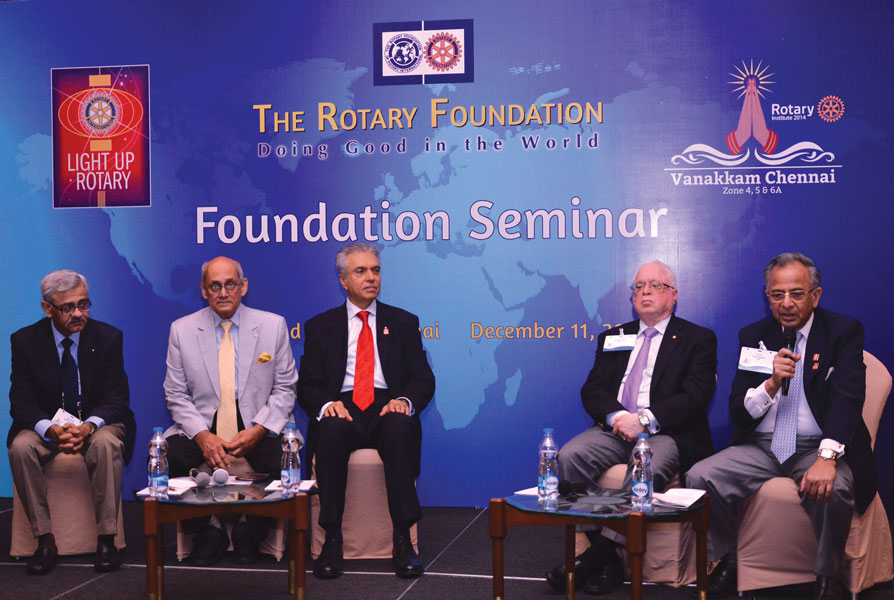
One of the major highlights of the Chennai Institute were different sessions on polio, which has come into a sharper focus thanks to the continuing shooting of polio workers involved in the Rotary immunisation programme in Pakistan.
At one session PRIP Kalyan Banerjee introduced TRF Trustee Sushil Gupta as innovator who always thought out of the box and how many Rotary projects had benefited from this trait, which he is now applying to tackle the difficult polio situation in Pakistan.
One such brainwave Gupta recently had was to involve the seven Peace Scholars Rotary has in Pakistan in this project. “I’ve been associated with polio eradication since 1988 in one capacity or the other, and have realised that as with our membership, one size does not fit all. The polio strategy in one country will not suit another, so unless we have some innovative thinking, or out of the box solutions, we can’t succeed.”
He recalled that in India when there was a huge spurt in polio cases in 2003–04, and “the situation looked terrible, we had come out with new responses. Pakistan is a very unique case. At one time it was being said that India would be the toughest nut to crack. But now Pakistan is proving to be that tough nut!”
He recalled the different strategies Rotarians had adopted in India, and now Pakistan was facing a peculiar problem in having different sets of Taliban. In a bid to explore new opportunities, “one thing that came to my mind was that for the last decade Rotary has been preparing peace scholars all over the world, spending millions of dollars on their education. They are present in almost every Rotary country of the world, so why not use them?”
Seven universities around the world offer courses in peace and conflict resolution and Rotary sponsors many such “peace scholars.” So when he tossed the idea of using the seven Peace Scholars Rotary has in Pakistan with the IPPC Chair John Germ, “saying they are our assets,” he immediately agreed, saying “we have invested in them, so why not?”
The result is that these seven peace scholars have been pressed into the polio eradication cause. One of these is a woman and she is now heading the initiative. “They have formed a group; most of them are in education, and have students all over Pakistan including the troubled areas where the polio immunisers face a big challenge.”
This group now meets every month to thrash out new ideas and devise strategies on how to make polio immunisation inroads into areas, mainly in the tribal regions of the northwest where the Taliban doesn’t allow the immunisation of children. “Our experience has taught us that once an initiative comes from the community, it makes a big difference.”
Asked if he has more such aces up his sleeve, Gupta smiles and says, “Just as we did in Nigeria, we are keeping quiet and doing the job. We are looking for more out of the box solutions and I am sure that polio can be conquered in Pakistan when the Rotarians are working so hard on it.”
On the continuing shooting of polio workers in Pakistan, PRIP Kalyan Banerjee says, “It is a huge challenge that no other country has and that they are continuing the work despite such huge challenges is also remarkable. The commitment of the people becomes stronger when the workers get shot, and that is a big positive.”





